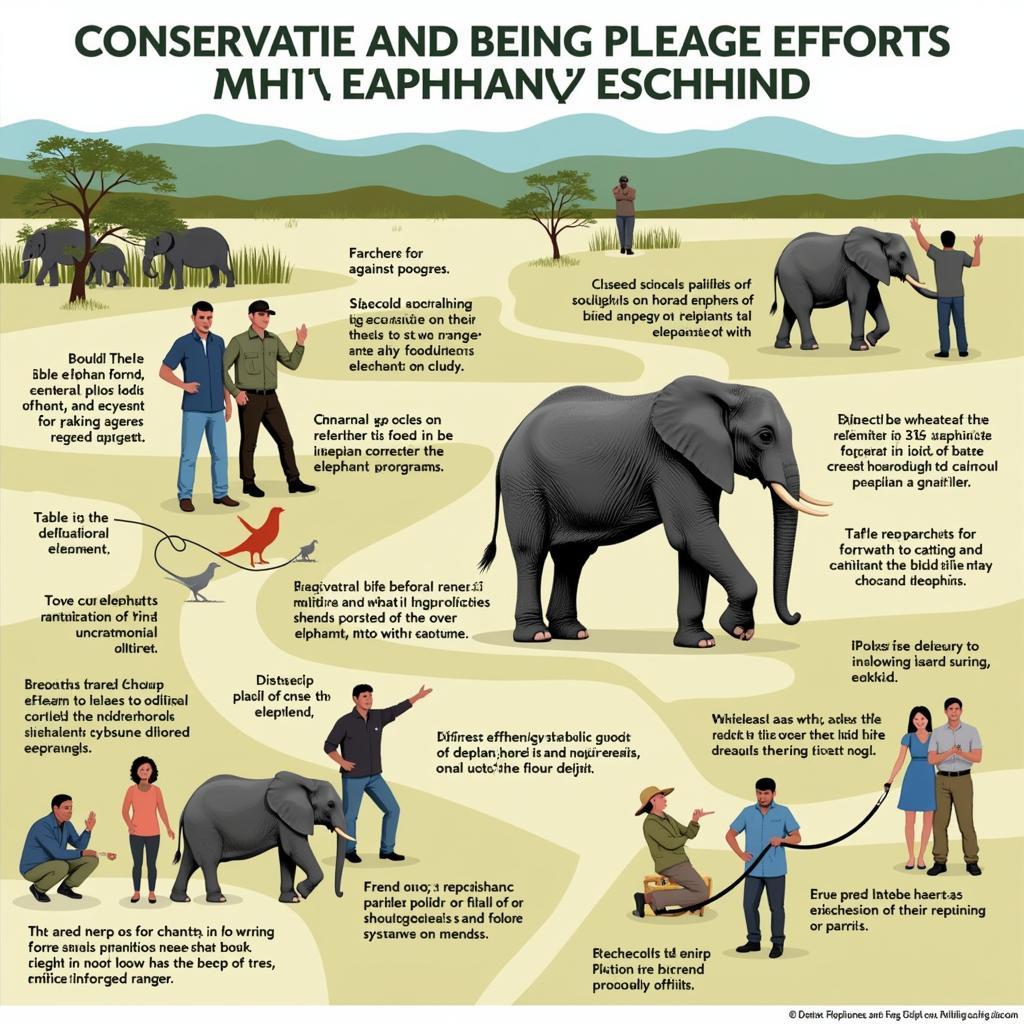Unveiling the African Civet: The Scent-Marking Master of the African Wilderness
The African Civet, often mistaken for a small, elongated cat, is a fascinating creature with a rich history intertwined with humans. This nocturnal mammal, scientifically known as Civettictis civetta, is renowned for its distinctive markings, musky scent, and valuable contribution to the perfume industry. Join us as we delve into the world of the African civet, exploring its habitat, behavior, and the cultural significance it holds across the African continent.
A Closer Look at the African Civet’s Appearance and Habitat
The African civet is easily recognizable by its striking coat pattern. Its coarse fur is typically grayish-yellow to reddish-gray, adorned with prominent black spots and stripes. A distinctive black and white mane runs along its back, which it erects when threatened, making it appear larger and more intimidating. Its long, bushy tail, marked with black rings, adds to its distinctive appearance.
African civets are highly adaptable creatures, thriving in a variety of habitats across sub-Saharan Africa. From rainforests and woodlands to savannas and even mountainous regions, these resourceful animals seek out areas with sufficient vegetation cover and access to water. Their preference for densely vegetated areas stems from their shy and solitary nature, as it provides ample hiding places from predators.
Nocturnal Foragers with a Varied Diet
True to their nocturnal nature, African civets emerge from their daytime hiding places as darkness descends, using their keen senses of smell and hearing to navigate their surroundings and hunt for food. These opportunistic omnivores boast a diverse diet, consuming a range of fruits, insects, small mammals, reptiles, and even carrion.
Their strong jaws and teeth equip them to tackle a variety of prey, while their scavenging habits contribute to the ecological balance by cleaning up carcasses. Interestingly, African civets play a vital role in seed dispersal, as they consume large quantities of fruit and deposit the undigested seeds through their droppings, aiding in the regeneration of forests and woodlands.
The Pungent World of Civet Musk
Perhaps the most intriguing aspect of the African civet is its production of civet musk, a highly prized ingredient in the perfume industry. This musky secretion is produced by the perineal glands, located near the anus of both male and female civets. The musk, a yellowish paste with a strong, pungent odor, is used to mark territory and communicate with other civets.
For centuries, civet musk has been collected for use in perfumes and traditional medicines. While synthetic substitutes are now available, the demand for natural civet musk persists, leading to the ethical concerns surrounding the civet farming industry.
African Civet Conservation: Addressing the Threats
Despite their adaptability, African civet populations face several threats, primarily habitat loss due to deforestation, agriculture expansion, and human encroachment. The illegal pet trade also poses a significant risk, as does the continued demand for civet musk, which often leads to the capture and confinement of wild civets in inhumane conditions.
Conservation efforts focus on protecting and restoring their natural habitats, raising awareness about the importance of responsible pet ownership, and promoting sustainable alternatives to civet farming. By understanding the ecological role and cultural significance of the African civet, we can work towards ensuring the survival of this remarkable creature for generations to come.
FAQs about African Civets
Are African civets dangerous to humans?
African civets are generally shy and non-confrontational animals. However, like any wild animal, they may defend themselves if they feel threatened. It’s important to observe them from a safe distance and avoid disturbing them.
What is the lifespan of an African civet in the wild?
The average lifespan of an African civet in the wild is around 15 years. However, factors such as habitat loss and predation can significantly impact their survival.
Can you keep an African civet as a pet?
While it’s possible to keep an African civet as a pet, it’s not recommended. These animals require specialized care, including a spacious enclosure, a specific diet, and regular veterinary checkups.
What is being done to protect African civets?
Conservation organizations are working to protect African civets through habitat preservation, anti-poaching initiatives, and education programs to promote responsible interactions with wildlife.
Discover More About the Fascinating Wildlife of Africa
Interested in learning more about the incredible animals that inhabit Africa? Check out these related articles:
- African Civet Cat For Sale: Learn about the ethical considerations surrounding the trade of African civets.
- African Civet Kruger National Park: Discover the best places to spot African civets in their natural habitat.
- African Civet Baby: Explore the adorable world of baby African civets and their development.
Need Help Planning Your African Wildlife Adventure?
Contact us! We are available 24/7 to assist you. Call us at +255768904061, email us at kaka.mag@gmail.com or visit us in person at Mbarali DC Mawindi, Kangaga, Tanzania. Our team is ready to help you plan your unforgettable African experience!


